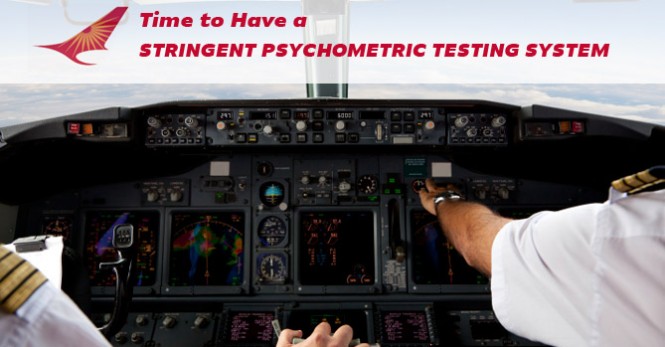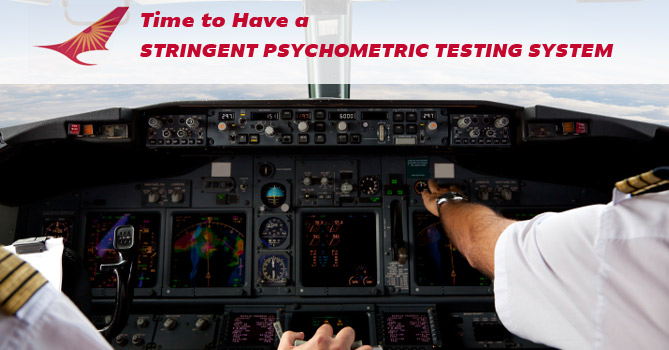 On 24 March 2015, Germanwings Flight 9525 plunged into the French Alps, somewhere midway through its flight from Barcelona in Spain to Düsseldorf in Germany. All 144 passengers and six crew members were killed. It soon came to light that the crash was a deliberate one and co-pilot, Andreas Lubitz who had been suicidal locked the pilot, Patrick Sondheimer, out of the cockpit before proceeding to destroy the plane.
On 24 March 2015, Germanwings Flight 9525 plunged into the French Alps, somewhere midway through its flight from Barcelona in Spain to Düsseldorf in Germany. All 144 passengers and six crew members were killed. It soon came to light that the crash was a deliberate one and co-pilot, Andreas Lubitz who had been suicidal locked the pilot, Patrick Sondheimer, out of the cockpit before proceeding to destroy the plane.
In the days following the crash, German investigators discovered that Lubitz had been researching suicide methods prior to the incident and was being treated for depression. He had also been declared “unfit to work” by his doctors, a condition he had hidden from his employers. The investigation also revealed that Lubitz had practiced descent on a previous flight. The incident came as a major shock to the world of civil aviation. The focus quickly turned to the medical and psychological testing that pilots go through in different parts of the world.
Regulatory Changes in International Aviation
Currently psychological tests of pilots across the world vary widely in form and content. The United Nations’ air safety organisation, International Civil Aviation Authority, does not define the nature of psychological tests that must be conducted on a pilot after having qualified. It only generally mentions that periodical medical reviews must include “questions pertaining to psychiatric disorders or inappropriate use of psychoactive substances”.
In the days following the tragic Germanwings crash, aviation authorities in several countries such as Australia, Canada, Germany, and New Zealand issued directives to their airlines making it mandatory for two authorised personnel to be present in the cockpit at all times. The Federal Aviation Administration (FAA) of the US has now set up a panel that shall completely overhaul the regulations related to psychological and medical evaluation of pilots. Apart from a change in training regulations, more rigid pilot-fatigue standards are likely to be put in place. While there has been no standard mental test for pilots in Europe hitherto, this may change in the days to come. The European Federation of Psychologists’ Associations (EFPA) and the British Psychological Society also strongly recommended the inclusion of psychological testing prior to the induction of pilots by airlines.
Air India Introduces Psychological Test
Earlier this month, Indian national carrier Air India announced that it would make psychometric testing a compulsory part of the recruitment of trainee commercial pilots. “Air India has made psychometric tests mandatory for the recruitment of trainee pilots. However, candidates recruited as cabin crew are not subjected to any psychometric test…. Many airlines are carrying out psychometric test for pilots at the time of induction”, said an official statement from the Minister of State for Civil Aviation, Mahesh Sharma to the Rajya Sabha. Following this announcement, the airline went on to conduct such tests on candidates for the first time. The interview panel that the candidates had to face included a number of psychologists from the Indian Air Force. The Economic Times reported that this is the first time any global airline has attempted to make mental fitness a mandatory criterion in the selection of commercial pilots. Based on the “concerns raised by psychologists”, Air India rejected about 40 out of 160 candidates.
Criticism of AI’s Psychometric Test
Despite the endorsement of Directorate General of Civil Aviation (DGCA), the test has thrown up a number of concerns. Air India has been unable to fill about 119 vacancies in the current recruitment drive due to these rejections. In February 2015, Air India has advertised 197 pilot vacancies for its fleet of 60 A320 aircrafts used in domestic routes. Among the applicants about 260 were cleared for the initial simulator proficiency test. About 160 candidates were called for the interviews. Rejection of 40 of these candidates, almost 25 percent, has led to cast doubts on the test itself. Industry experts, however, think that the psychometric test is not to blame. About 136 of the 197 vacancies were in the reserved category and only about 61 were open to general categories. Among the 120 candidates cleared by the psychologists only 91 have been shortlisted (including 13 on standby). This has made it very difficult for the carrier to fill in the trainee pilot vacancies.
Will Existing Pilots be Tested?
Industry experts believe that it is a matter of major concern that about 25 percent of the candidates have failed psychological testing at the time of recruitment. ‘How many of the existing pilots are under psychological stress?’, is now the obvious question. Financial stress, spurred on by excessive spending, and credit culture, constitutes the greatest stress factor faced by pilots, many believe. Some DGCA safety board members believe that all commercial pilots, currently working with the various domestic and international airlines operating out of the country, should be tested to make air travel safe for the people. In India, air travel is a highly competitive industry, with airlines often engaging in price wars and offering massive discounts to capture greater market shares. This, however, should not reflect in the quality of services or in the ease of operation for personnel involved. Indian airlines are known to have pilots and crew members operating in high fatigue and stress conditions.
Will Other Airlines Follow Suit?
At the moment it looks highly unlikely that other private airlines in India will introduce psychometric testing at the recruitment stage. The DGCA, however, may come up with regulations that may make such mental tests mandatory for pilots who are in the employ of these airlines. As of late 2014, Indian airlines employed about 5050 pilots while there are over 1.3 lakh commercial pilots across the world. One may only stop to wonder how many of them would qualify to fly if a comprehensive psychological test is run.




